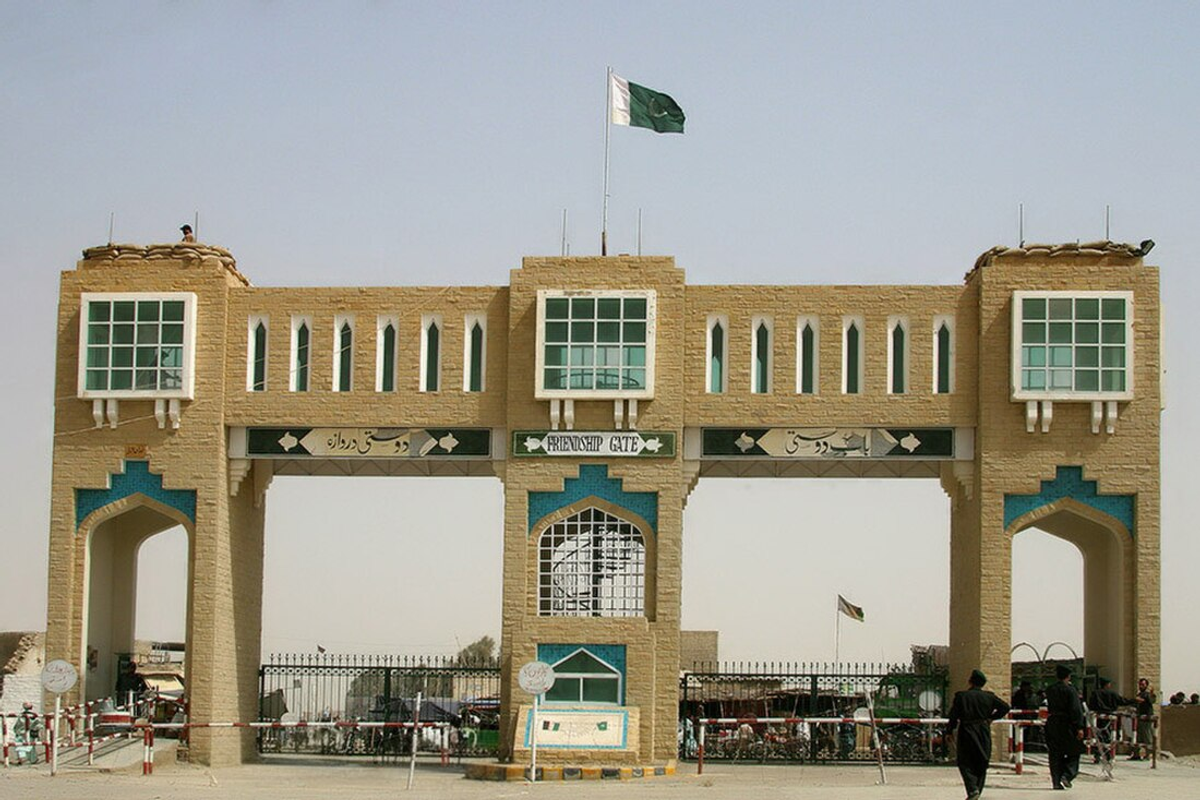Pakistan, Afghanistan reopen key border crossing after ceasefire talks in Qatar
Authorities said security remains on high alert, with the border and immigration section still sealed

Kamran Ali
Correspondent Nukta
Kamran Ali, a seasoned journalist from Khyber Pakhtunkhwa, Pakistan, has a decade of experience covering terrorism, human rights, politics, economy, climate change, culture, and sports. With an MS in Media Studies, he has worked across print, radio, TV, and digital media, producing investigative reports and co-hosting shows that highlight critical issues.

Kabul blasts on Oct 9 sparked Taliban attacks and Pakistani retaliation, causing casualties on both sides.
Photo via X
The Spin Boldak-Chaman border crossing between Pakistan and Afghanistan was temporarily reopened on Monday following a ceasefire agreement reached during recent negotiations between the two countries in Qatar.
Pakistani security officials told Nukta that the crossing was opened temporarily to allow the return of empty trucks that had transported Afghan refugees across the border.
“Regular trade and pedestrian movement remain suspended and will resume only after further discussions,” one official said, requesting anonymity.
Authorities confirmed that security remains on high alert along the frontier, which continues to be sealed for routine crossings. The immigration section also remains closed.
The partial reopening brought some relief to dozens of Pakistani truck drivers who had been stranded on the Afghan side since the border’s closure. Many had been waiting for days amid mounting losses and deteriorating conditions.
Tensions escalated after a series of explosions in Kabul on October 9, prompting Taliban attacks along Pakistan’s frontier. Islamabad responded with retaliatory fire, leading to casualties and damage on both sides.
While the ceasefire agreement in Doha helped ease immediate hostilities, cross-border trade remains paralyzed. According to Shahid Hussain, Chairman of the Pakistan-Afghanistan Central Asia Trade Promotion Committee, hundreds of trucks are still stuck at the Torkham, Chaman, Kharlachi, and Angoor Adda crossings - many carrying perishable goods.
“The delays are forcing traders to sell products at half price or discard them altogether,” Hussain told Nukta, estimating losses of roughly $3 million for importers and exporters on both sides. “Both governments must work toward a lasting solution to prevent these recurring disruptions that cripple bilateral trade.”










Comments
See what people are discussing